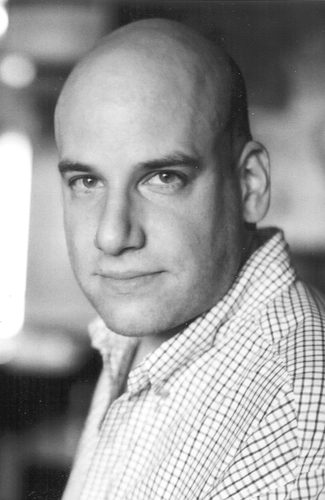
Christopher DeLaurenti
Lecturer
Musicology
From his debut album, Three Camels for Orchestra, which was hailed in The Wire magazine as “bold, forthright, and utterly committed,” to recent albums such as To the Cooling Tower, Satsop (deemed “an excellent piece of music” by the hard-to-please Vital Weekly), Christopher DeLaurenti challenges received notions of composition, performance, music, and listening.
Described as a “field-recording maestro” (The Sound Projector) and a “guerilla phonographer” (The Wire magazine), DeLaurenti works in a variety of media. His albums, live performances, installations, and radiophonic works encompass field recordings, trans-idiomatic improvisation, and software-based generative systems along with cracked electronics and traditional acoustic instruments.
DeLaurenti’s sound work has appeared on over 50 solo, collective, and compilation LPs, compact discs, and cassettes. Notable solo releases include To the Cooling Tower, Satsop (GD Stereo, 2015); No Sound is Stolen: Fair Use Music (Alterity 101, 2014); Phonopolis (Masters Chemical Society, 2014, USA); of silences intemporally sung: Luigi Nono’s Fragmente-stille, An Diotima (reductive, 2011); Favorite Intermissions (GD Stereo, 2008); and N30: Live at the WTO Protest November 30, 1999 (American Archive, 2000).
A seasoned musician, DeLaurenti has performed live on countless stages from the well-known and world-class (Benaroya in Seattle, Glasgow’s Tramway, MoMA in New York) to modest yet superb-sounding spaces (Chapel Performance Space, The Kitchen, Whitney Museum) to bars, restaurants, and cafés (re-bar, Jasmine Tree, Starbucks) which range from surprisingly lovely to nose-curdlingly disgusting and hell-hole-ish.
DeLaurenti has created works for radio, chiefly N30: Live at the WTO Protest November 30, 1999 (KCMU, 2000 and 2002); Two Secret Wars (KUMN, 2003); and more recently Fit the Description (Australia’s Radio National 2015) and Subaudible Phonography (WGXC & La Radia network, 2019). DeLaurenti has also scored films and branded content for Sony, IBM, and other commercial clients. Before the rise of networked gaming, he contributed sound design and character voices to many games such as Space Empires IV and Panzer Elite.
A fortunate recipient of multiple awards and artist residencies, DeLaurenti is grateful for the support of many institutions especially The Herb Alpert Foundation; Duke University; Artist Trust; Puffin Foundation; CENTRUM; School of the Art Institute of Chicago; Harvestworks; Ucross Foundation; Seattle Arts Commission; and Vermont College of Fine Arts.
Several publications appeared in 2025: His “text score for Text Scores (to the memory of Ruth Anderson)” was included in A Year of Deep Listening (Terra Nova/MIT Press); the “Post” issue of The Open Space journal contains the complete score of Flags can do nothing without trumpets (2020), a work for theatrical chamber ensemble; and a book chapter, “Rails of Protest,” was published in the edited volume Matter of North: Essays on Glenn Gould and The Idea of North (SUNY Press).
DeLaurenti holds an MFA from Bard College with a focus on phonography and audio production. He completed his PhD in Sound and Media Studies at Goldsmiths, University of London. Since 2000, DeLaurenti has taught courses and led workshops at over two dozen institutions, mainly at The College of William & Mary; Cornish College of the Arts; The New School; Harvard University; and the Peabody Institute.